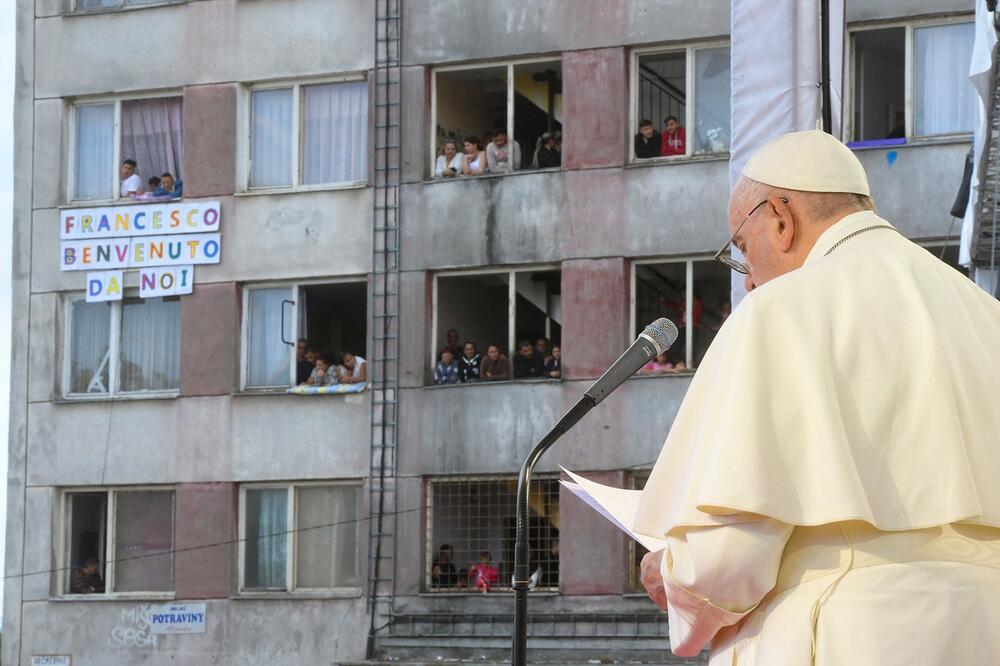Old buildings, disease and poverty.
There is a pungent odor in the air, the smell of laundry and the stench of sewage. Bed linen hangs sadly from the balconies of the buildings, there are real Soviet bars from the 70’s, which have not been renovated since.
Cables for illegal connection to electricity are coming out of the old buildings, which are without water. This is the type of Lunik IX district on the outskirts of Košice (eastern Slovakia), the largest Roma ghetto in this Central European country and one of the largest in Europe, where unemployment exceeds 90 percent.
Lunik is today considered one of the largest Roma communities in Slovakia, Paudal writes.
The only oasis in this place, which currently has about 4,000, is the Salesian-run parish, which is surrounded by a fence that children climb before the priest asks them not to.
“We have to lock everything here,” says Father Marian Peciar.
“The big difference between us and the other organizations working here is that we’re always here,” he says. “The locals know we’re here for them and we trust them for that.”
Mothers at 15, grandmothers at 30
The Salesians came to Lunik in the summer of 2008 in agreement with the diocese, whose priests could no longer perform their ministry in the neighborhood, spending only a few hours a month there.
Born in Kosice, Father Petar Besheni is responsible for opening this community, a mission he has committed himself to “out of obedience, not choice.”
“This experience with the poor has made me change a lot since then because I realized the importance of redirecting to a few things that really make us happy,” he says.
If the Salesians are not perceived as “social workers” and their “primary mission is to lead to Christ,” they still offer specific services to the people of the area, the community leader said.
“After our arrival, we helped many people leave Lunik and build a better life elsewhere,” said Father Besheni.
“Our mission is to act constantly. We also work with young people, the residents are open to living with many children, but often do not have the strength to educate them. In Lunik, women are mothers at 15 and grandmothers at 30.”
Pope Francis also came to the area on Tuesday, September 14 last year.









